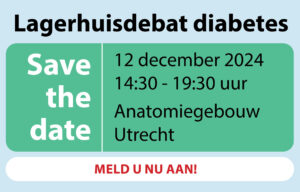To study plasma and dietary linoleic acid (LA) in relation to type 2 diabetes risk in post–myocardial infarction (MI) patients.
We included 3,257 patients aged 60–80 years (80% male) with a median time since MI of 3.5 years from the Alpha Omega Cohort and who were initially free of type 2 diabetes. At baseline (2002–2006), plasma LA was measured in cholesteryl esters, and dietary LA was estimated with a 203-item food-frequency questionnaire. Incident type 2 diabetes was ascertained through self-reported physician diagnosis and medication use. Hazard ratios (with 95% CIs) were calculated by Cox regressions, in which dietary LA isocalorically replaced the sum of saturated (SFA) and trans fatty acids (TFA).
Mean ± SD circulating and dietary LA was 50.1 ± 4.9% and 5.9 ± 2.1% energy, respectively. Plasma and dietary LA were weakly correlated (Spearman r = 0.13, P < 0.001). During a median follow-up of 41 months, 171 patients developed type 2 diabetes. Plasma LA was inversely associated with type 2 diabetes risk (quintile [Q]5 vs. Q1: 0.44 [0.26, 0.75]; per 5%: 0.73 [0.62, 0.86]). Substitution of dietary LA for SFA+TFA showed no association with type 2 diabetes risk (Q5 vs. Q1: 0.78 [0.36, 1.72]; per 5% energy: 1.18 [0.59, 2.35]). Adjustment for markers of de novo lipogenesis attenuated plasma LA associations.
In our cohort of post-MI patients, plasma LA was inversely related to type 2 diabetes risk, whereas dietary LA was not related. Further research is needed to assess whether plasma LA indicates metabolic state rather than dietary LA in these patients.


